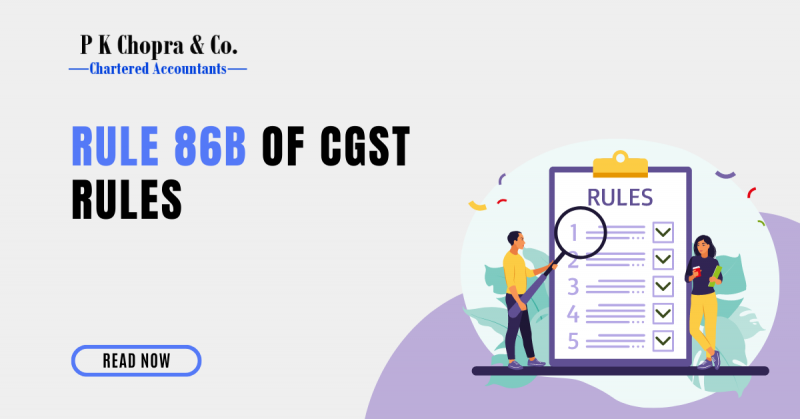Rule 86B of CGST Rules
Rule 86B of the Central Goods and Services Tax (CGST) Rules governs the issuance of refund vouchers by a registered taxpayer. The rule was introduced to streamline the process of refunds under the GST regime and to ensure that the taxpayer receives the refund in a timely and hassle-free manner. In this blog, we will discuss the key provisions of Rule 86B and its implications for taxpayers.
What is Rule 86B of CGST Rules?
Rule 86B of the CGST Rules provides for the issuance of refund vouchers by registered taxpayers in cases where they are entitled to a refund of taxes paid. The refund voucher serves as a certificate of entitlement to a refund and can be used to claim the refund. The rule also specifies the details that must be included in the refund voucher and the manner in which it must be issued.
Key Provisions of Rule 86B
- Issuance of Refund Vouchers: Rule 86B provides that a registered taxpayer can issue a refund voucher in respect of the taxes paid by them. The refund voucher must be issued on or before the expiry of two years from the relevant date.
- Details to be included in Refund Vouchers:
The refund voucher must contain the following details:- Name and address of the issuer
- GSTIN of the issuer
- Name and address of the recipient
- GSTIN of the recipient (if any)
- Description of the goods or services
- Amount of tax paid
- Refund amount
- Date of issue
- Signature or digital signature of the issuer
- Manner of Issuance: Rule 86B provides that the refund voucher can be issued in either physical or electronic form. In case of electronic issuance, the refund voucher must be digitally signed by the issuer.
Implications of Rule 86B for Taxpayers
The introduction of Rule 86B has several implications for taxpayers. Firstly, it provides a clear and defined process for the issuance of refund vouchers, which will make it easier for taxpayers to claim their refunds. Secondly, the inclusion of detailed information in the refund voucher will ensure that the taxpayer’s entitlement to the refund is established. Thirdly, the option of electronic issuance of refund vouchers will make the process more convenient and efficient.
In conclusion, Rule 86B of the CGST Rules is a significant development for taxpayers as it provides a clear and streamlined process for claiming refunds under the GST regime. By following the provisions of Rule 86B, taxpayers can ensure that their refunds are processed quickly and without any hassle.

